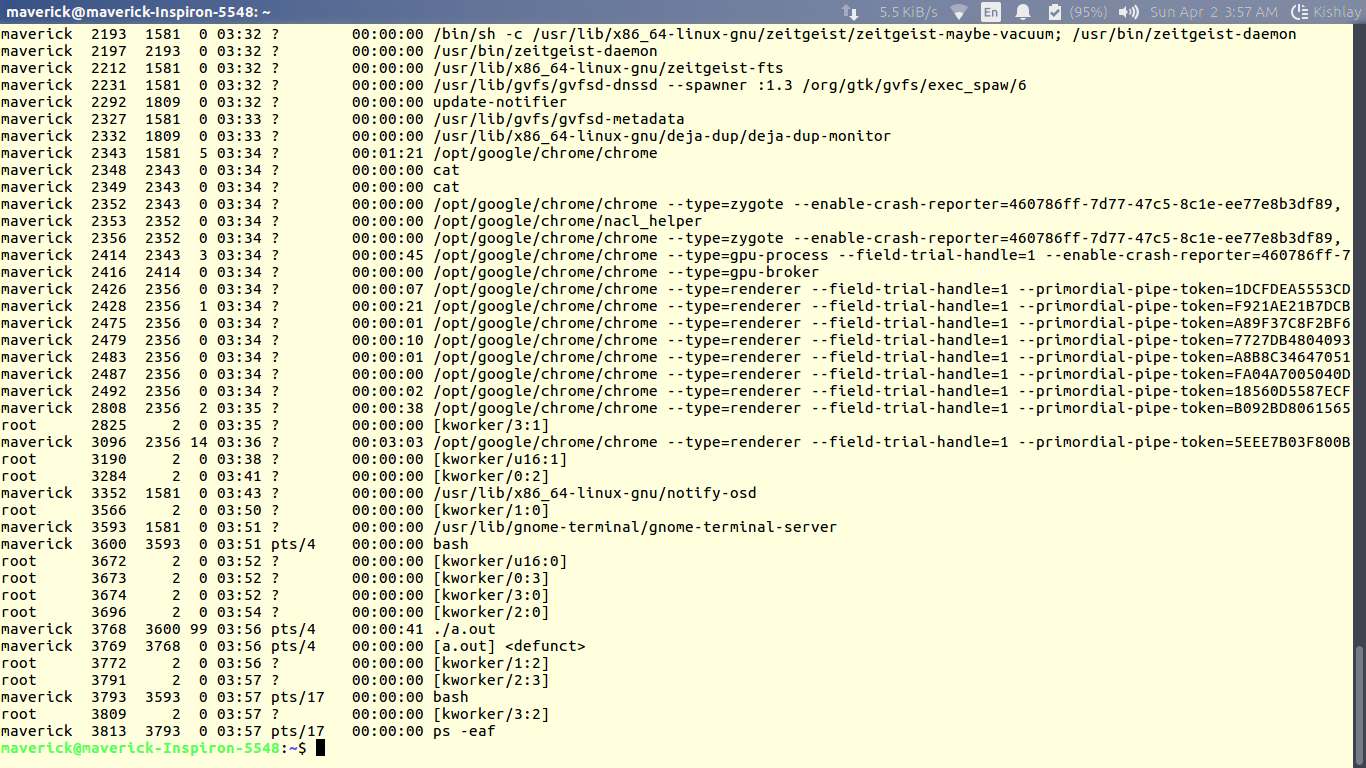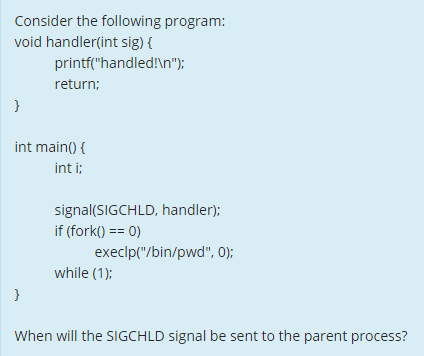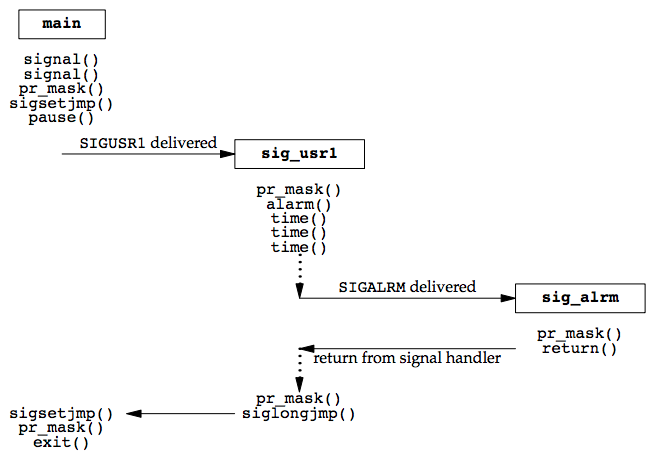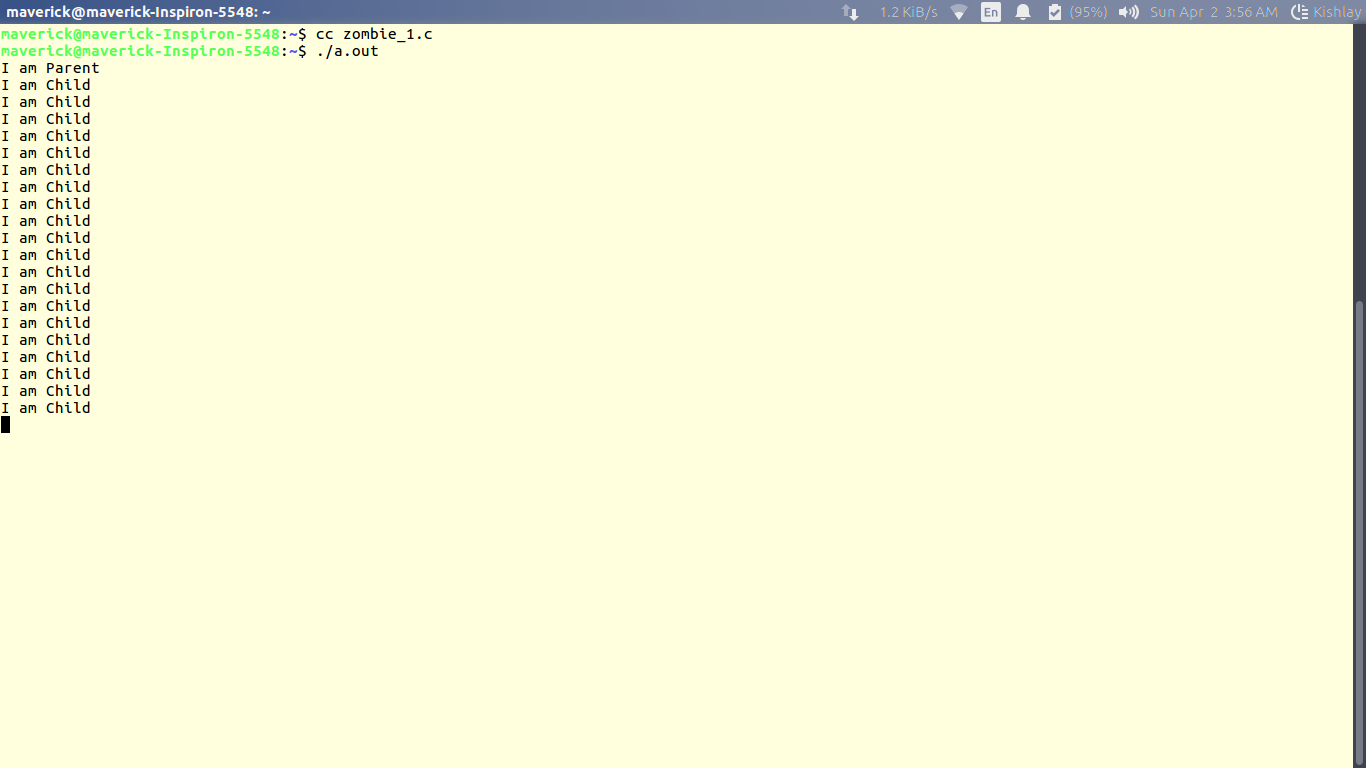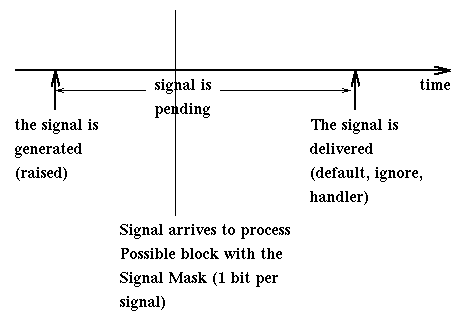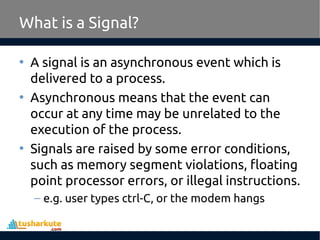Looking Good Tips About How To Handle Sigchld
Saved[sig] = signal.getsignal(sig) if twisted in repr(saved):
How to handle sigchld. The default behavior of sigchld is to discard the signal, but the child process is kept as a zombie until the parent calls wait() (or a variant) to get its termination status. The parent is blocked in its call to accept when the sigchld signal is delivered. The parent is blocked in its call to accept when the sigchld signal is delivered.
The default response to the signal is to ignore it. The pcntl_signal () function installs a new signal handler or replaces the current signal handler for. When a child process stops or terminates, sigchld is sent to the parent process.
The parent process installs a signal handler for the sigchld signal. Handle sigchld in c to be notified when a child process has exited. The signal handler calls wait () system call within it.
The sig_chld function executes (our signal. } void set_signals() { sigset_t set; Saved = {} for sig in [signal.sigint, signal.sigterm, signal.sigchld]:
How do you handle the sigchld signal? Void chld_handler(int signum) { if (signum == sigchld) check_and_wait(); In this scenario, when the.
How do you handle the sigchld signal? Raise notimplementederror if self._loop.default and self._sigchld_handle is none: By using a signal handler:


